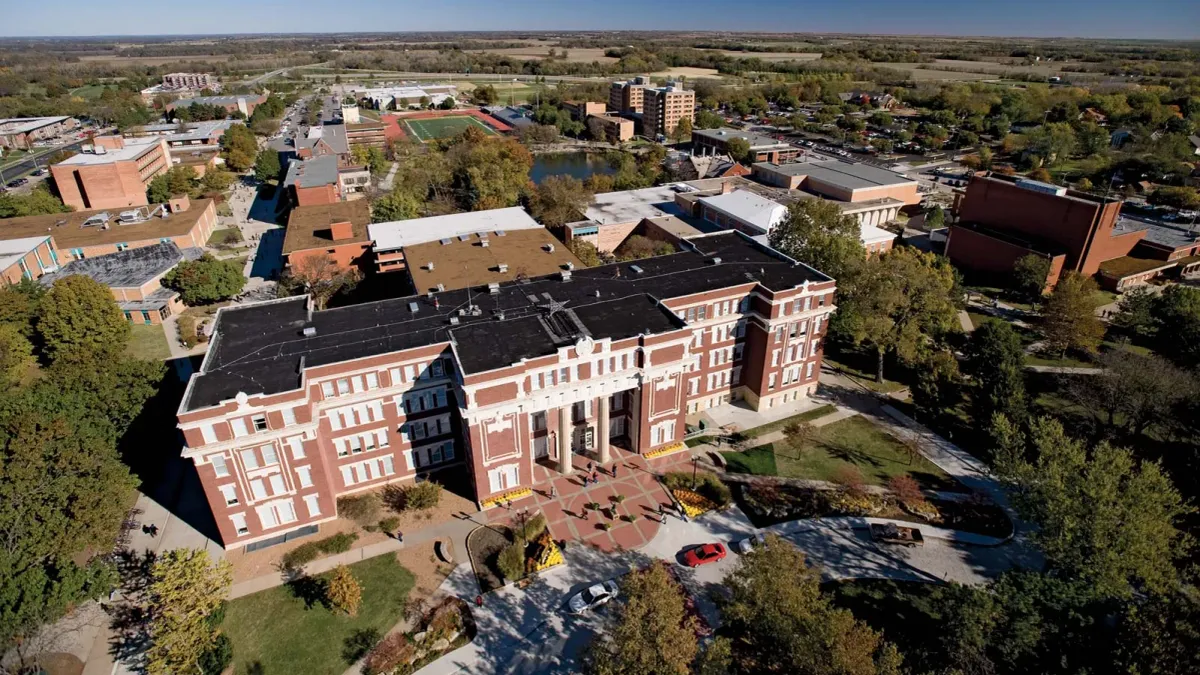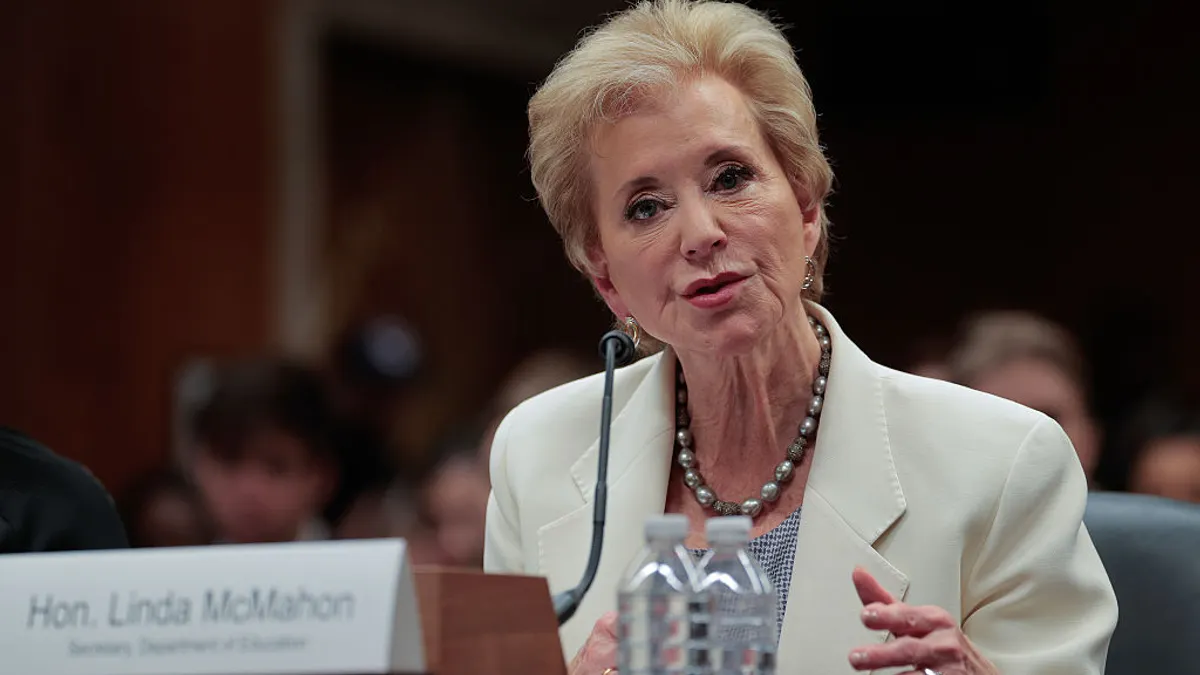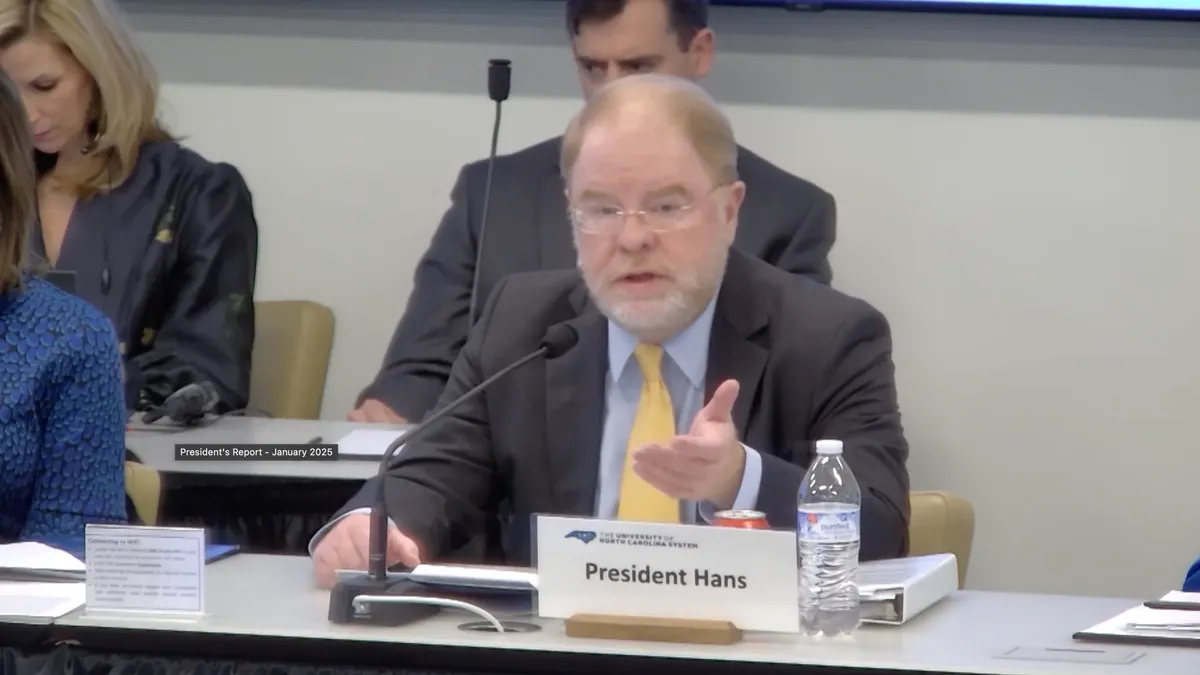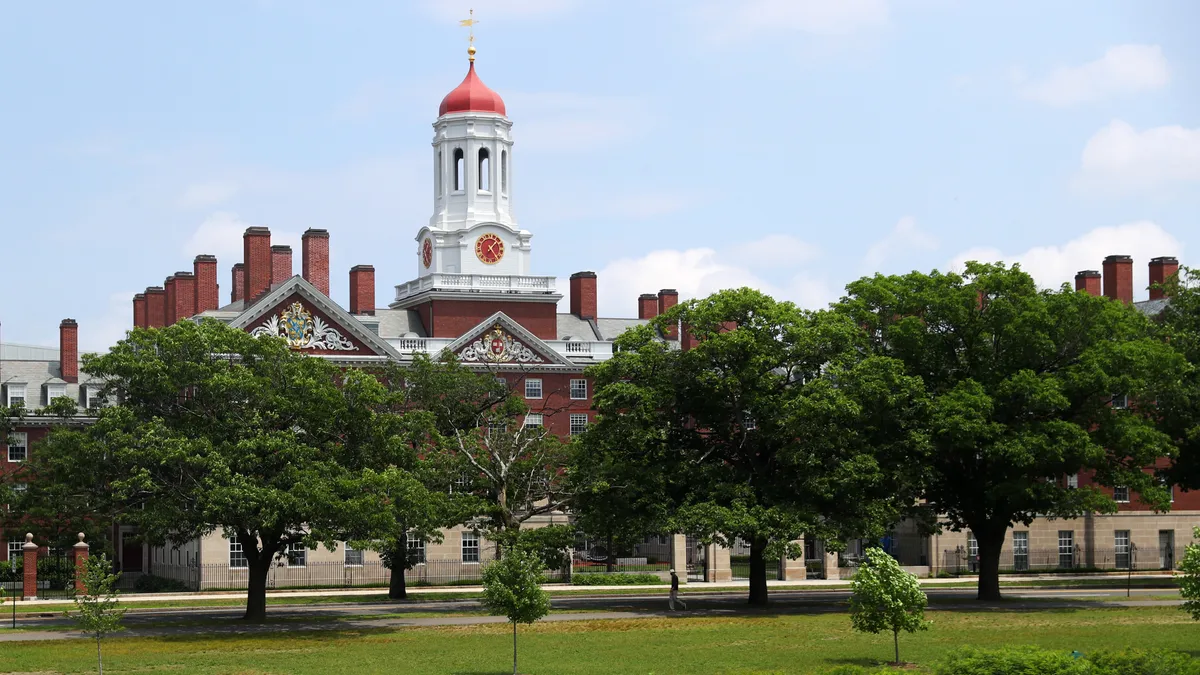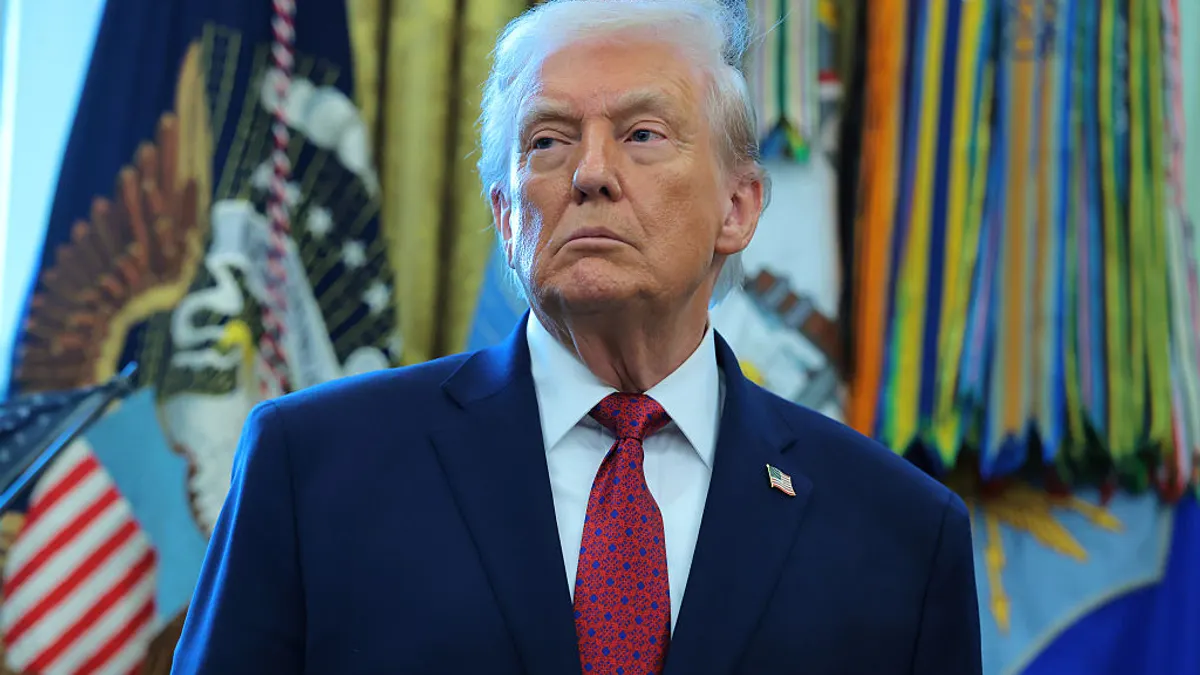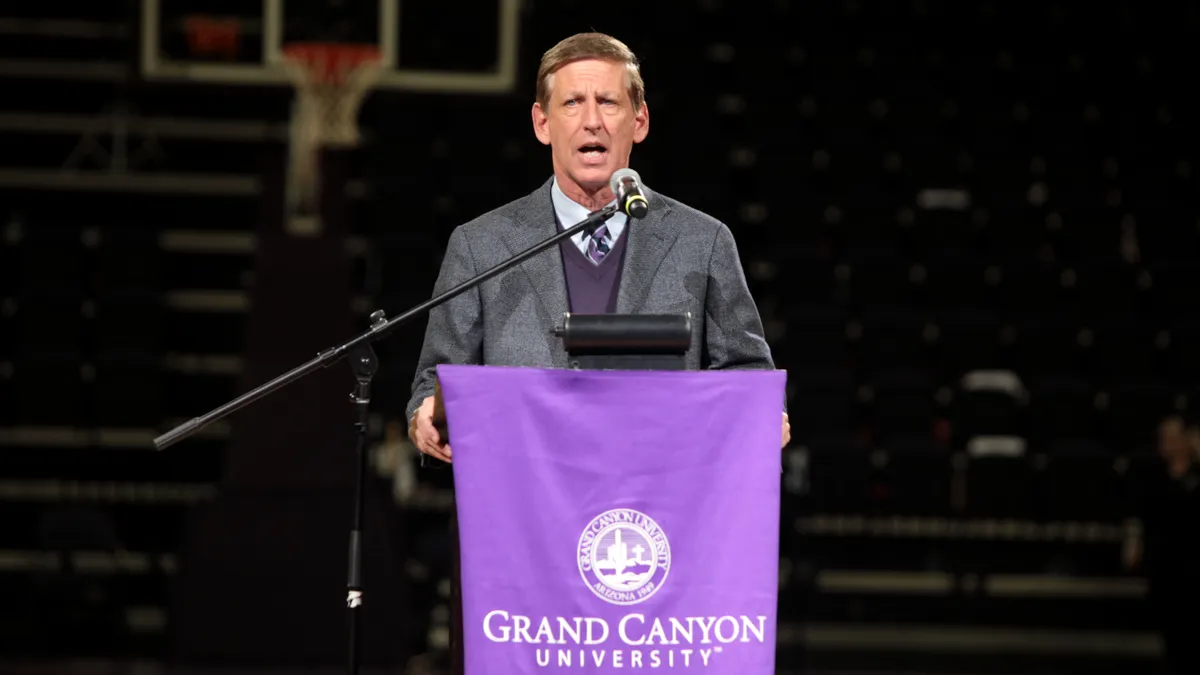The nation’s leading faculty group has accused Emporia State University of imperiling academic freedom when it laid off at least 30 professors last year over financial concerns.
The Kansas public institution said it dismissed the tenured or tenure-track faculty members because of pandemic-induced financial stress. But an American Association of University Professors investigation, the findings of which were made public Monday, casts doubt on that assertion.
AAUP said, for instance, that Emporia State’s president, Ken Hush, authorized $1,000 bonuses to all employees the same year layoffs occurred and that the university's fiscal 2022 budget included $10 million in one-time federal pandemic aid money.
A point not included in the AAUP investigation is that six weeks after the university fired the faculty members, they gave 68 others a total $137,741 in performance bonuses, the Kansas Reflector reported this month.
An Emporia State spokesperson did not respond to a request for comment Friday.
Tenure protections
Tenured faculty members — like those Emporia State terminated in September — traditionally enjoy lifetime job security unless they violate policy or law, or are laid off because of an extreme financial emergency.
AAUP's standards on academic freedom outline circumstances when firing a tenured professor may be appropriate — like if an institution declares financial exigency, in which a college’s survival is imminently threatened.
But Emporia State did not proclaim financial exigency when it announced the layoffs. Instead, the university drew on a pandemic-era policy instituted by the Kansas Board of Regents that permitted cash-strapped institutions in its purview to more easily dismiss faculty members.
That policy expired in December of last year, and Emporia State took advantage of it three months earlier in September — far after the board put the rule in place in January 2021.
Based on the policy, Emporia State crafted a new list of reasons it could terminate employees, which included “cost of operations” and “realignment of resources.”
The Kansas regents signed off on this framework and shortly thereafter Emporia State began the layoffs. University officials called affected employees into last-minute meetings and read off a script that outlined their dismissal, as is common in layoff situations across industries.
One fired faculty member told AAUP that officials “read aloud our dismissal letters as though we were being formally charged with a crime,” according to a summary of the group’s investigation.
Emporia administrators also didn’t disclose the precise reason they were terminating the employees, according to AAUP.
The faculty organization said Emporia State offered three months in severance pay.
Targeted faculty?
AAUP said the laid-off professors hypothesized they were targeted because they were publicly critical of administrators, particularly of Hush, who did not come up through the traditional academic pipeline.
Before becoming interim president of Emporia State in 2021, and then full president the next year, Hush worked in the corporate world, including at Koch Industries.
Presidents from backgrounds outside academia have sometimes come under fire from faculty and other critics who argue they may be unqualified. Corporate executives-turned-college leaders also have run into trouble infringing on the shared governance model of higher ed.
After AAUP raised concerns with Hush in September, he wrote in a letter to the group that he could “unequivocally state that no personnel decision was made at any time based on any person’s personal, professional, or political views, expressions, or statements.”
However, when AAUP initiated its investigation into the job cuts in October, Emporia State refused to participate.
The organization determined the firings “flagrantly violated applicable AAUP-recommended procedural standards, thus rendering the terminations illegitimate with respect to those standards.”
Further, though Emporia State attributed its actions to deep financial problems, it never articulated specifics of them, according to AAUP’s report.
“Instead, it describes a confluence of financial pressures — related to enrollment, state funding, and operating costs — that public colleges and universities have felt for some time,” the organization said. “But the administration did not explain what differentiated Emporia State from the hundreds of other colleges and universities that have overcome similar challenges in the last three years.”
Emporia State’s enrollment has shrunk slightly over the last several years, dropping from 7,399 students in the 2016 academic year to 7,245 in 2021, according to Kansas regent data.
It also took some revenue hits between fiscal 2021 and fiscal 2022, its financial statements show. The university’s operating revenues were $47.2 million for the 2022 fiscal year, a 2.3% decrease from the prior year, or $1.1 million less.
Student tuition and fee revenue dropped from $33.2 million in 2021 to $31.4 million the next year, a 5.4% difference. State appropriations, meanwhile, increased 6.4% to $34.8 million from $32.7 million in the same time period.
The university also announced this month it will rework its academic structures to eliminate departments and turn them into schools, effective in August. The move drew some criticism from faculty, including from those who will lose their department chair positions.
AAUP said one of its governing bodies will decide whether to censure Emporia State this month. The condemnation does not carry formal consequences but intends to signal that an institution lacks academic freedom and is unwelcoming for faculty.


